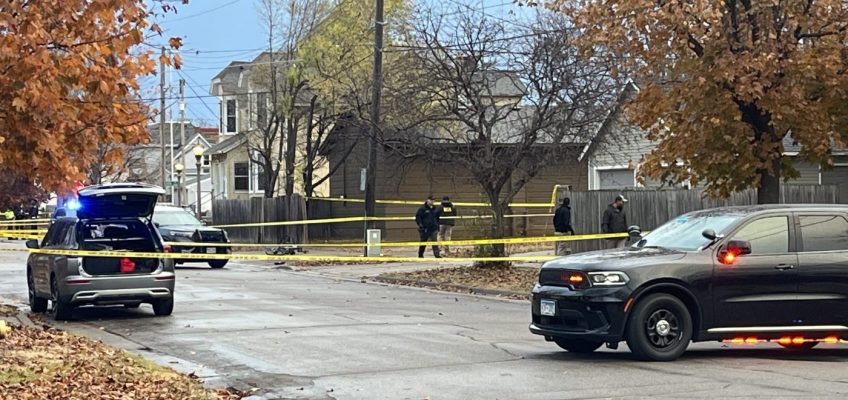Gretchen McKay | (TNS) Pittsburgh Post-Gazette
HARPERS FERRY, W. Va. — Nestled along two converging rivers, with the Blue Ridge Mountains’ precipitous cliffs offering a backdrop, Harpers Ferry has long been praised for its rugged natural beauty.
Thomas Jefferson was definitely a fan. After visiting the West Virginia town at the height of fall color in October 1783, he wrote that “the passage of the Patowmac (Potomac) through the Blue Ridge is perhaps one of the most stupendous scenes in Nature…. It is as placid and delightful as that is wild and tremendous….This scene is worth a voyage across the Atlantic.”
The town named for millwright Robert Harper in 1747 soon became one of our third president’s favorite retreats, and today, the mound of Harpers shale on which he stood to survey the water gap below is a popular destination along the Appalachian Trail.
George Washington was more impressed by the small town’s “inexhaustible supply of water,” though for reasons other than today’s passion for tubing, rafting and kayaking on white water. Its gushing natural resources led the former president and wealthy landowner to choose Harpers Ferry for a new national armory in 1796. It turned what had been a somewhat sleepy hamlet into a prosperous industrial village. Between 1801 and 1861, the town produced 600,000 muskets, rifles and pistols for the Army.
Yet this easternmost town in West Virginia didn’t gain national fame until the Civil War.
It was here, in 1859, that abolitionist John Brown and his small group of men seized the armory in hopes of starting an uprising in the South against slavery. The raid itself was unsuccessful. His party was surrounded by federal troops, taking heavy casualties, and Brown was hanged in December 1859 after being convicted of murder, treason and inciting enslaved people to revolt. Many believe that it was the “spark” that ignited the Civil War.
If you love history, it lives on at Harpers Ferry, which became a national historic park in 1963. It focuses not just on John Brown’s raid, and the Civil War — Stonewall Jackson captured more than 12,500 Union troops here, the largest single capture of Federal forces in the entire war — but also shines a light on African American history, industry, transportation and natural heritage.
And if you find joy in hiking, cycling, mountaineering or paddling? You will find lots to do in and around this picturesque town on the Shenandoah and Potomac rivers. There also are numerous shops and restaurants, including in nearby Bolivar, if eating, drinking and shopping are high on your to-do list.
Food for thought
History buffs love Harpers Ferry because it played an important role in the Civil War. And walking around charming Lower Town gives the feeling of stepping back in time. One of the most visited historic sites is the only Armory building to escape destruction during the Civil War: John Brown’s Fort, where the abolitionist and several followers barricaded themselves during the final hours of their doomed raid. In 1891, it was dismantled and transported to Chicago for the World’s Fair.
Other buildings reach even further into the past.
When Robert Harper established a ferry across the Potomac River in 1761, it made the town a starting point for settlers moving into the Shenandoah Valley and further west. They included members of the famed Lewis and Clark expedition, who in 1803 made preparations here for their historic exploration of the western portion of the country after the Louisiana Purchase.
In addition to buying supplies and weapons, Meriwether Lewis had craftsmen design a lightweight iron frame for a boat he’d need once he got to shallower water out west. The boat, which was later outfitted with animal hides, was a disaster, sinking right away. But as you learn in the park’s exhibit space on Potomac Street, across the street from the town’s historic Victorian train station, that was the fault of the animal hides — not the ironwork of the town’s (excellent) craftsmen.
Harpers Ferry had become a ghost town by the 1950s and was reconstructed by the Park Service in the ’60s as a “multi-leveled interpretive proving ground.”
Wearing comfortable shoes? National Park Service rangers lead free tours detailing the history of Harpers Ferry National Historical Park. Or, take a self-guided Black heritage walking tour that includes 34 stops.
Interpretive park ranger Amy King leads a free tour of Harpers Ferry’s historic town center. (Gretchen McKay/Pittsburgh Post-Gazette/TNS)
It starts at Lockwood House, which overlooks what was Harper Cemetery. Originally built in 1848 as housing for the armory paymaster, it transitioned after the Civil War into living quarters for formerly enslaved men and women at Storer College, a historically Black college that operated from 1867 to 1955.
Lower Town also includes an industry museum, a 19th-century “landscape” that will fascinate the kids and both Civil War and Black History museums. And if you climb the rocky set of 44 steps that were carved into the hillside in 1810 behind the museums, you can take in a view of the city below from the stone patio of St. Peter’s Roman Catholic Church.
The great outdoors
West Virginia is famous for its variety of outdoor activities on both land and water, and Harpers Ferry does not disappoint. The Appalachian Trail, one of America’s most famous footpaths, passes through Lower Town, and visitors can trek or bike the Chesapeake and Ohio Canal towpath that runs along the banks of the Potomac River. (You’ll find maps at the Visitors Center.)
If you don’t mind breaking a sweat and have a few hours, a moderately strenuous but rewarding hike follows the Maryland Heights trailhead to Overlook Cliff. The climb is both steep (1,154 feet uphill) and long (a 4.5-mile loop). But when you get to the top, the view of Harpers Ferry below is bucket-list spectacular. And be forewarned: It takes fluids to get to the top and there are no restrooms (or water) on the trail. You’ll have to hold it for hours, especially if you pack a lunch!
The cliffside overlook also can be dangerous if you’re hiking with small children or are wearing the wrong shoes. There’s no fencing to stop anyone from toppling over the rocks — and people can get pretty close to the edge for that perfect Instagram photo.
Also Insta worthy, but on more solid ground: the rock climbers that can frequently be spotted scaling the southern face of a 300-foot vertical cliff leading to Maryland Heights.
Less challenging (but not accessible to those with physical limitations) is the hike up the Stone Steps to St. Peter’s church, past the ruins of St. John’s Episcopal Church, to Jefferson Rock.
You’re not allowed to climb onto the Harpers shale slab that gave Jefferson such pleasure, but you’ll share his terrific view. Continue up the hill a little farther and you’ll hit the Appalachian Trail on your way to Camp Hill, the 32-acre site that once housed Storer College and is now owned by the Park Service.
Harpers Ferry is considered the halfway point of the trail, and during the season weary-looking hikers are a common sight around town and on the towpath across the Potomac. Many stop at the trail’s hikers’ lounge on Washington Street to rest or take a picture on its front porch. So far in 2024, visitor center rep Dave Tarasevich has counted more than 1,240 northbound hikers.
“It’s one of the few places where the trail goes through town, literally,” he said.
Water sports, including fishing, are also popular here. Some people canoe and kayak through October; there’s also white water rafting in season. You also can go horseback riding.
Shop, eat, drink
After all that walking and history learning, you’re going to want to unwind with some good food and drink. While you won’t find big-city gourmet eats, you can get a pretty good meal at several places around town.
Historic Harpers Ferry Lower Town includes a dry goods store. (Gretchen McKay/Pittsburgh Post-Gazette/TNS)
I had a tasty salad made with microfarm hemp hearts, greens, tomatoes and avocado on the patio at The Rabbit Hole, and a pretty good burger at Coach House Bar and Grill.
For coffee, fresh-baked pastries and sandwiches, head to Battle Grounds Bakery & Coffee. If you don’t eat meat, West Virginia’s very first vegan restaurant — Kelley Farm Kitchen in Bolivar — has got you covered with salads, Impossible burgers, hoagies and ramen bowls.
Some places are dog-friendly, including my favorite spot for pizza and a beer — Harpers Ferry Brewing in neighboring Purcellville, Va. Perched on the side of a mountain next to Harpers Ferry Adventure Center, it offers an awesome view along with local craft brews and live music on weekends through November.
Just know that everything in this small town, even the brewery, shutters pretty early. The only life downtown after dark is The Barn of Harpers Ferry, a music venue and bar that offers live music every night Wednesday through Saturday.
Want to take a piece of West Virginia home with you? In boutiques along High Street and Public Way, you’ll find everything from original art and distinctive jewelry crafted by regional hands to old-fashioned candy and confections, antiques and hokey souvenirs.
Getting there
Harpers Ferry, West Virginia, is about a 3 1/2-hour drive from Pittsburgh on mostly highway roads (Interstates 76 and 70). If you’d rather be chauffeured, it’s about a six-hour ride on Amtrak, and the train drops you off right in town. A one-way fare runs $65-$220, depending on class. Once there, it’s easy to get around town by foot or bike.
Related Articles
7 ‘Wicked’ good ideas for an Oz-inspired vacation
Why you should give Myrtle Beach another chance for your beach trip
Reader Alert: Travel with our food editor, Jess Fleming, to Scandinavia!
Tech review: Bring a few extra screens on your next roadtrip
Travel: Journey into Wisconsin’s Door County, where nature and art prevail
An avid cyclist? Harpers Ferry is at mile 60.7 on the C&O Canal Towpath.
If you do drive, it costs $20 to enter the park (for three consecutive days) and both metered parking and park parking are extremely limited in Lower Town; on weekends it’s best to park at the Visitors Center at 171 Shoreline Drive and take the free shuttle into town.
Lodging options include bed and breakfasts, campgrounds, a hostel and locally and nationally owned motels. For a guide on where to eat, seasonal events and other attractions, visit wherealmostheavenbegins.com.
©2024 PG Publishing Co. Visit at post-gazette.com. Distributed by Tribune Content Agency, LLC.




